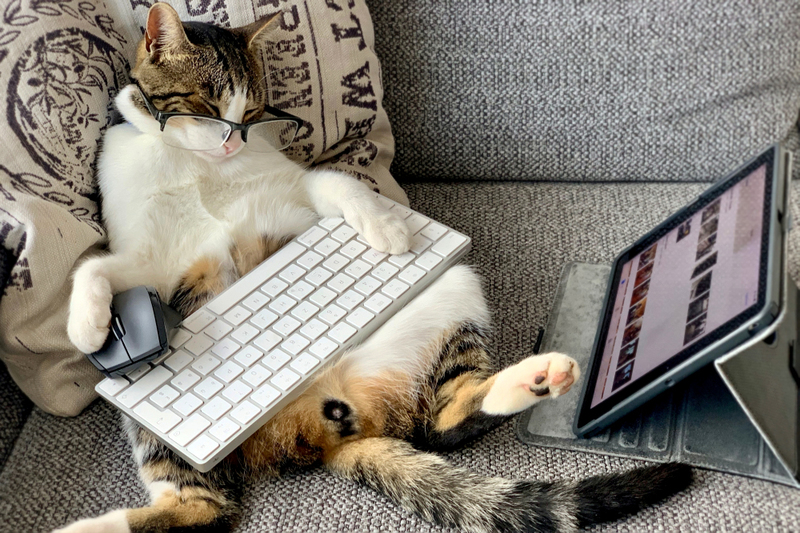AMERICAN WEDDINGS BLOG
Stay up to date with the latest wedding ceremony trends, script writing inspiration, tips and advice for first-time officiants, and news that matters to couples and wedding ministers.
Stay up to date with the latest wedding ceremony trends, script writing inspiration, tips and advice for first-time officiants, and news that matters to couples and wedding ministers.
Published Monday, May. 17th, 2021
Last updated Friday, Jun. 6th, 2025

It can be intimidating to call the clerk's office as a first-time wedding officiant! What do you say? How do you say it? And what if the clerk tells you to submit more paperwork before officiating a wedding? It's a lot to think about!
But talking to a city or county clerk is much easier than it seems at first. Clerks are there to help you (for the most part, we explain more below). And as a new wedding officiant, it's important to get comfortable talking to them. After all, clerks have the most up-to-date information on how to fill out and file a marriage license!
With that in mind, we put together a few suggestions to make that first phone call as stress-free as possible.
Do a little homework before you pick up the phone to call the clerk's office. Taking time to prepare will make the rest of the phone conversation easier.
► Weddings By State: Minister Registration by State
Note: Check the rules in the county where the wedding venue is located, which may be different than where you live in. If you’re performing a wedding in a different state, you must check the registration requirements in the state where the wedding will take place. Click the link below for more help with this step.
► Find out what county your wedding venue is in: How to Find Out What County a Wedding Venue is In -- Marriage License Tips
► Order needed Minister Credentials in the AMM Store
This one sounds obvious, but you might be surprised! Different states, and sometimes different counties, have different rules for performing a wedding and returning a marriage license. That’s why it’s so important to call the correct county office. Double check that you are calling the county where the wedding will take place.
Once you know the correct county clerk's office to call, a quick internet search will help you find their phone number. Use a simple internet search that includes "name of county + state + marriage license"
► Head here to find out what county the wedding venue is in, and which office to call: How to Find Out What County a Wedding Venue is In -- Marriage License Tips.

What county is the wedding venue in?
Ok, it's time to talk to the clerk! You did your homework and now it's time to get answers to any questions you have.
When someone answers: Introduce yourself as an ordained minister and wedding officiant. Then, ask any questions you have about the legal aspects of performing a wedding. Don’t worry, they’ve heard it all before!
It's as simple as that.
Here at AMM, county clerks remind us of adorable, aloof cats. Yes, cats. There’s a chance that the clerk you talk to will sound grumpy, rushed, or in need of a strong cup of coffee. But that’s why we love them: they are doing important work with limited resources.
(And luckily, clerks are much more helpful than actual cats.)

County clerks are much more helpful than actual cats.
(No offense to this hard worker.)
Here are a few common questions to help you start the conversation:
You've already looked this up, but it's important to confirm this with the clerk directly. Make a list of any additional paperwork to complete.
Depending on where you are, you or the couple getting married will need to return the marriage license. Each location has its own requirements for returning a license by mail, in-person, or electronically. Ask for the specifics!
The date by which a marriage license must be returned is called the "return date." Each state has a different return date, so confirm this with the clerk.
► See the Return Date for your location here: What are the Marriage License Waiting Period, Expiration, and Return Dates?

Get ordained with AMM before you call the county clerk's office.
We’ve heard reports of county clerks in certain states telling ministers that their online ordinations aren’t valid or accepted. Unfortunately, these particular clerks are not here to help you, and they may even give you information that (intentionally) contradicts the current laws in their state or county.
We realize that this spread of misinformation can be confusing and frustrating. We’re always here to help you better understand your rights as an AMM Minister.
Here’s what you need to know: Ordination through American Marriage Ministries is recognized in the entire United States and its territories (except Virginia). In the past, lawmakers in some states (like New York, Pennsylvania, and Tennessee) have tried to make it difficult or impossible for online-ordained ministers to perform weddings. Some clerks in those areas still try to refuse the credentials of online-ordained ministers.
If you encounter this situation, contact us right away so that we can help you: AMM Contact Information
Become a Wedding Officiant with Our Free Online Ordination!